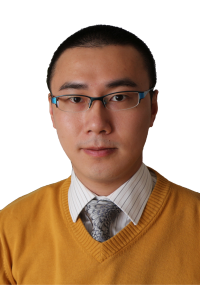
Dr. Chan focuses on computational chemistry research, engaging in the crystal structure prediction of drug molecules as well as the applications of molecular dynamics calculations. His research area includes the incorporation of artificial intelligence in overcoming the bottleneck of crystal structure prediction, and to simulate the process of crystal nucleation and growth. The prediction work would guide the solid form selection experiments, including polymorph, cocrystal and salt.
Research Areas
Recruiting Master student(s), who is/are interested in the modelling and experimental research on the solid form physical properties of drug molecules. Applicant(s) should have the background of pharmacy, chemistry (including Cheminformatics), physics, or material science. Applicant(s) with experience in scientific programming and machine learning would be more preferrable.
Education
Dr. Chan was graduated from the School of Pharmacy (Bachlor of Science) at the Chinese University of Hong Kong. He was awarded his Master Degree (Master of Science) at the University of Bradford (UK), during which he engaged in screening cocrystal forms of a herbal active ingredient for improving its water solubility. He was later awared his Doctoral Degree (PhD) at the same university, where he applied computational methods like quantum mechanics calculations to predict polymorphism of drug molecules.
2012 University of Bradford (UK) PhD
2009 University of Bradford (UK) MSc
2005 The Chinese University of Hong Kong BSc
Experience
Dr Chan worked at a multinational pharmaceutical company, Novartis Pharma Limited, for 4 years as a Postdoctoral Fellow. In 2016, he setup a scientific consulting company and continued offering scientific service to pharmaceutical companies like Novartis. He focused on crystal structures with disordered components, and developed an intelligent algorithm to re-assembly the disordered fragments, and to allocate the molecules in a re-scaled unit cell. The result was important to crystal structure prediction, since dedicated spacial arrangements of molecular conformers would add extra stability to the packing. Whilst working in Switzerland for 7 years, he participated and guided over 10 pre-clinical projects and attended relevant scientific conference, including those at the Cambridge Crystal Data Centre.
Work Experience
2019-09~Now, The Chinese Academy of Sciences, Shenzhen Institutes of Advanced Technologies. Associate Research Professor
2016-10~2019-08, Actmol Limited, CEO
2012-10~2016-09, Novartis Pharma Limited, Postdoctoral Fellow
Publications
Papers
(1) Enhancing the Signaling of GPCRs via Orthosteric Ions, ACS CENTRAL SCIENCE, 2020.
(2) Advancing Drug Discovery via Artificial Intelligence, TRENDS IN PHARMACOLOGICAL SCIENCES, 2019.
(3) New Binding Sites, New Opportunities for GPCR Drug Discovery, TRENDS IN BIOCHEMICAL SCIENCES, 2019.
(4) Exploring a new ligand binding site of G proteincoupled receptors, CHEMICAL SCIENCE, 2018.
(5) Rationalization of stereoselectivity in enzyme reactions., COMPUTATIONAL MOLECULAR SCIENCE, 2018.
(6) Designing Safer Analgesics via mu-Opioid Receptor Pathways, TRENDS IN PHARMACOLOGICAL SCIENCES, 2017.
(7) The Principles of Ligand Specificity on beta-2-adrenergic receptor, SCIENTIFIC REPORTS, 2016.
(8)Towards ab initio screening of co-crystal formation through lattice energy calculations and crystal structure prediction of nicotinamide, isonicotinamide, picolinamide and paracetamol multi-component crystals, CRYSTENGCOMM, 2013.
(9)Molecule VI, a Benchmark Crystal‐Structure‐Prediction Sulfonimide: Are Its Polymorphs Predictable? ANGEWANDTE CHEMIE, 2011.
Collaboration
In collaboration with Prof. Nick Blagden (University of Lincoln) for his experimental support on cocrystal and salt screening platform.
